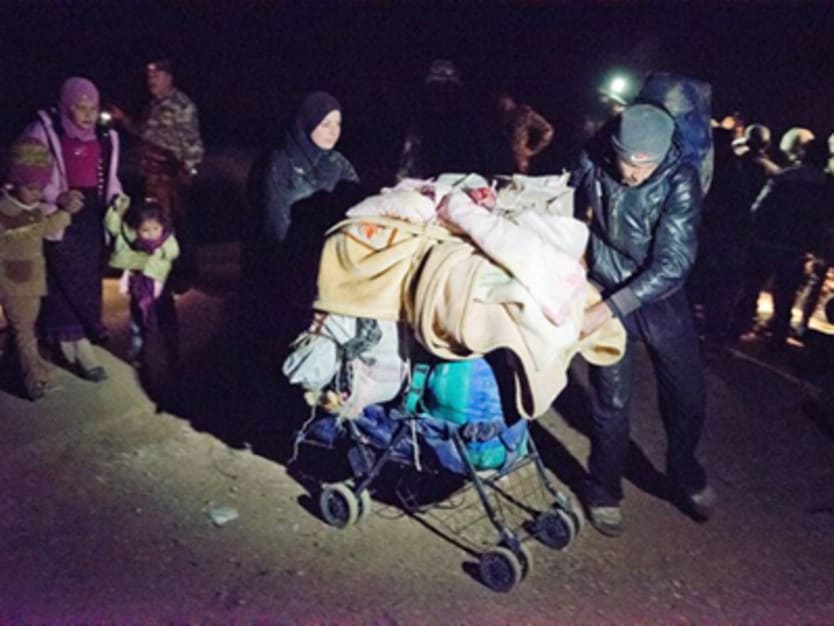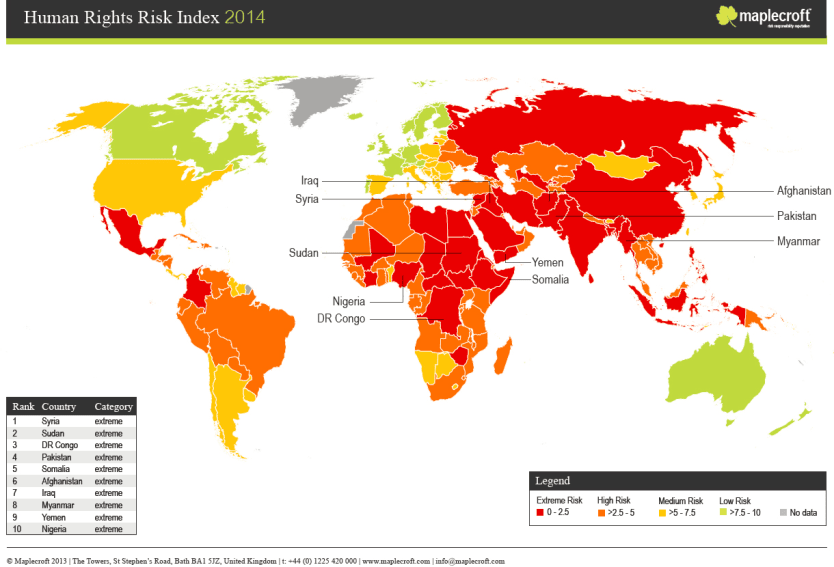
The debate over whether donors should continue giving aid money to countries with poor human rights records has been going on for at least a decade, and the development community remains divided.
While rights groups have been calling on donors to reduce or stop giving development money to abusive governments — or at least condition funding — others argue doing so could hamper development. It could also be seen as a hypocritical move, especially since many of these donors have a history of human rights abuse and maintain strong trading ties with countries that are deemed to have abusive governments as well.
But is there a correlation between human rights abuses and the pace of development in countries?
“Human rights violations impede access to basic services — such as education, health care and employment — especially for the poorest and most vulnerable social groups,” Liz Kebby-Jones, senior human rights analyst at Maplecroft, told Devex. “Failure to support inclusive socio-economic growth holds back a country’s ability to realize overall development goals.”
In its Human Rights Risk Atlas 2014 report, global risk and strategic consulting firm Maplecroft ranked 197 countries according to the threats to human security, restrictions on civil and political rights, discrimination, and widespread immunity, among other factors.
Not surprisingly, countries that have been mired in conflict ranked high in Maplecroft’s atlas. Syria, where civil war has been raging for nearly three years now, tops the list. In fact, the top 10 countries where the human rights environment is considered extremely at risk have all experienced sporadic or protracted conflict in recent years.

Click the map to view in large size.
The index also classifies some of the strongest performing economies in the developing world as “extreme risk” countries. These include India (18), the Philippines (27) and Indonesia (30).
Because India, a low-cost sourcing hub for consumer goods, does not have strong legal and regulatory frameworks, working conditions are often appalling and do not meet health and safety standards. Deforestation and “a climate of impunity,” meanwhile, result in rampant land grabs in Indonesia.
“Since 2008, global economic growth and investment has shifted to new markets prompting a demand for low-cost workers, water and land as well as other natural resources,” Lizabeth Campbell, Maplecroft’s head of societal risk and human rights, said, adding that human rights violations are worsening in many of these markets.
Join the Devex community and gain access to more in-depth analysis, breaking news and business advice — and a host of other services — on international development, humanitarian aid and global health.
